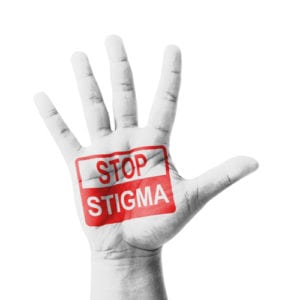There are many reasons for why someone may develop a personality disorder, with some of those reasons perpetuating stigma. For example, many people believe personality disorders are a sign of evil or a ploy used to help people manipulate others. However, this couldn’t be further from the truth. Personality disorders are developed not by choice, and can cause significant distress to one’s daily life. The American Psychological Association (APA) has identified the following causes of personality disorders:
- Genes. Some personality traits can be carried on through our inherited jeans. This often makes up our temperament, which is defined as a person’s character, disposition, and tendencies as revealed in his or her reactions.
- Environment. Mayo Clinic states that the conditions that we grew up in, events that happened, and relationships with family and friends throughout our childhood have a say in the way our brain develops. Our connection with our parents during this time is also crucial, and is known as the “nature-nurture” dynamic.
- Childhood trauma. In a literature review conducted earlier this year by several researchers, it was further emphasized that early life stress (ELS) such as sexual abuse, physical abuse, emotional abuse, physical neglect, and emotional neglect in early childhood triggers, aggravates, maintains and increases the recurrence of psychiatric disorders.
- High reactivity. APA has noted that if our own personality involves extreme shyness, timidity, or anxiousness, we are at a higher risk for developing a personality disorder.
Many people who hold symptoms of a personality disorder do not seek treatment because they feel they can manage their symptoms on their own or that what they are experiencing is “normal” and doesn’t need treated. However, personality disorders have the power to greatly impact day-to-day functions. The symptoms experienced from a personality disorder can inhibit us from developing close relationships, endanger our well-being, cause us to miss work and social obligations, and more.
Dr. Hoermann, Zupanick, and Dr. Dombeck stated for Mental Help in 2013 that nature and nurture both play key roles in the development of personality disorders. They are often not isolated – and the longer a person waits to seek treatment, the more likely they are to experience worsening symptoms and lack of control over their emotions and/or behavior.
If you believe you may have a personality disorder, speak with one of our licensed healthcare professionals at Avalon Malibu Mental Health & Addiction Treatment Center today. Our luxury facilities offer world-class treatment, hospitality, uncompromised confidentiality and four levels of continuing care. Don’t wait to begin learning about your disorder and how you can better manage your symptoms. Call today at 855-548-8394.











